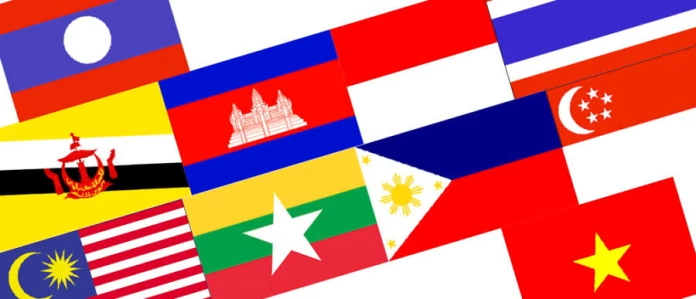Southeast Asia could face a major challenge if the US imposes tariffs on Chinese imports. This may lead to a flood of cheap Chinese goods entering the region. To address this, ASEAN must act collectively, use available trade mechanisms, and engage China in discussions to avoid further protectionist measures.
The impact of US tariffs on Southeast Asia
If US President Donald Trump proceeds with his plan to impose a 60 per cent tariff on all Chinese goods, Southeast Asia could see a rise in cheap Chinese imports, which would otherwise have gone to the US.
The situation worsens as the US considers placing tariffs of 10 to 20 per cent on Southeast Asian goods. Rather than negotiating separately with the US, ASEAN must respond together. A unified approach will give ASEAN greater leverage to influence global trade policies and help maintain open markets.
Southeast Asian governments are already dealing with the pressure of cheaper Chinese imports. This situation has been aggravated by the ongoing US-China trade dispute. In 2024, China’s trade surplus reached a record US$992 billion. Countries like Indonesia have raised anti-dumping duties and strengthened measures to prevent illegal imports. Businesses across the region are pushing for protection against what they see as unfair competition from China.
How ASEAN Can tackle the surge of Tariffs
Southeast Asian businesses have benefited from the shift of Chinese goods and capital, which are often re-exported to the US. However, these goods could now be targeted by US tariffs. Whether the goods are reprocessed or relabelled as Southeast Asian products, they are increasingly at risk.
Tariffs can lead to retaliation, and such a trade war will likely make countries poorer. This is why ASEAN must act together.
1. Work together as ASEAN
ASEAN countries need to form a unified response. While some countries, like Indonesia, are larger and have more influence, working together as ASEAN gives the region more power. A joint approach will ensure ASEAN can effectively respond to the US and protect its interests.
2. Use existing trade mechanisms
ASEAN should use the trade tools it already has at its disposal. These include safeguard measures and anti-dumping duties, which help protect local industries from sudden surges of imports and unfair pricing. These measures are recognised in international agreements and give ASEAN time to adjust to the situation and assess how to best support local businesses.
3. Engage with China
ASEAN should also open a dialogue with China. This will allow the region to discuss the necessary safeguards to handle any trade surges. It is also an opportunity to find long-term solutions, such as building more resilient supply chains, to avoid escalating protectionist policies.
Leveraging regional agreements for a stronger response
ASEAN already has agreements that include China, such as the Regional Comprehensive Economic Partnership (RCEP). RCEP provides mechanisms for meetings and coordination. This platform allows ASEAN to take a more coordinated approach to managing trade disruptions and challenges, ensuring that the region can speak with one voice and propose solutions that benefit all members.
Furthermore, the RCEP has proven effective in the past, offering a framework for ASEAN countries to manage and mitigate trade-related tensions. By working within this established system, ASEAN can strengthen its bargaining power when engaging with both China and the US, ensuring that any response is not only unified but also well-supported across the region.
Supporting global trade systems for long-term stability
Southeast Asia’s development has been shaped by its integration into the global economy, relying on a stable, rules-based multilateral trading system. While this system is under growing pressure, ASEAN’s strong support is crucial to ensuring its survival and continued function. A robust, well-regulated trading system benefits all nations, as it promotes fair competition and consistent economic growth.
Without a clear, decisive response, ASEAN risks facing significant challenges. However, if the region acts collectively and takes advantage of existing agreements, it can not only safeguard its own interests but also help to maintain the stability of the global trading environment. In this way, ASEAN can help ensure that the benefits of international trade continue to be shared across all economies, preventing further escalation of protectionist measures.
